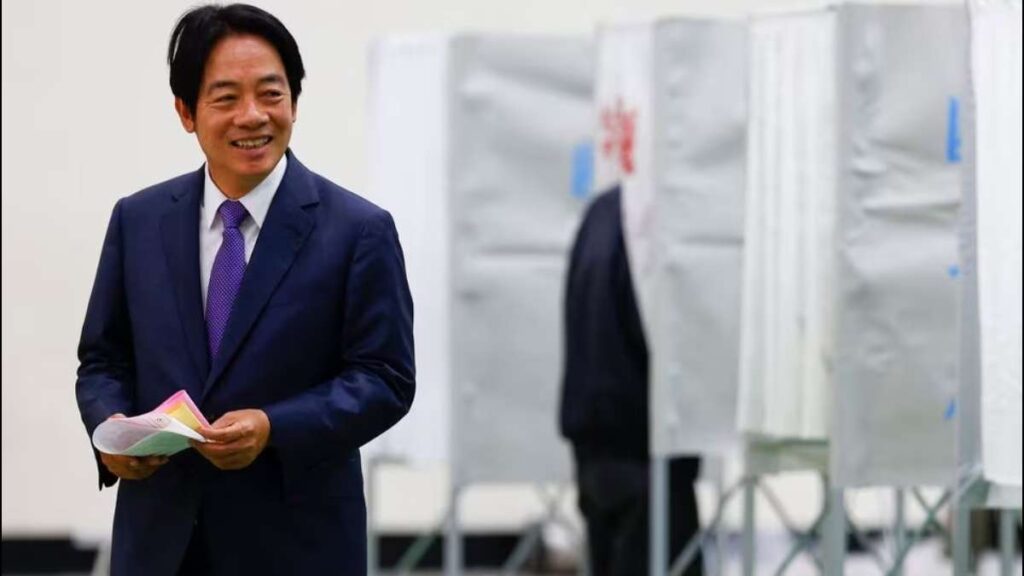In a major rebuff to China, Taiwan’s high-stakes presidential elections concluded with a victory for Lai Ching-te, the candidate for the ruling Democratic Progressive Party (DPP).
The strong rejection of Chinese threats by the voters is expected to escalate Taiwan’s tensions with its arch-rival Beijing, who framed the polls as a choice between war and peace. Lai received over 5 million votes and more than 40 per cent of the vote share after 90 per cent of the votes were counted till 7:45 pm (local time).
Lai faced two opponents for the presidency – Hou Yu-ih of Taiwan’s largest opposition party the Kuomintang (KMT), which favours friendly relations with China, and former Taipei Mayor Ko Wen-je of the small Taiwan People’s Party, only founded in 2019. Hou and Ko conceded defeat after receiving 33 per cent and 26 per cent of the votes respectively.
Lai has declared his intention to continue Tsai’s policy that Taiwan is already independent and needs to make no declaration of independence that could spark a military attack from China. The Taiwanese vice president said he remains open to establishing a dialogue with Beijing without conceding the country’s right to rule itself.
In the run-up to the election, China repeatedly denounced Lai as a dangerous separatist and rebuffed his repeated calls for talks. Lai says he is committed to preserving peace across the Taiwan Strait and boosting the island’s defences. China had ramped up its military incursions in a bid to pressurise Taiwanese voters not to support Lai citing his position on an independent Taiwan.
The turnout was described as positive, reaching 70 per cent in cities including Taipei, Tainan, and Taoyuan, with minor accidents like voters ripping up their ballot papers, taking pictures with cellphones, or flashing signs, according to local media.
Lai was the presidential front-runner and his victory in the ongoing elections is the most likely outcome. His win could bring an angry response from China, which claims Taiwan as its own territory, and is expected to make things tough for the DPP candidate to pursue his policies.



